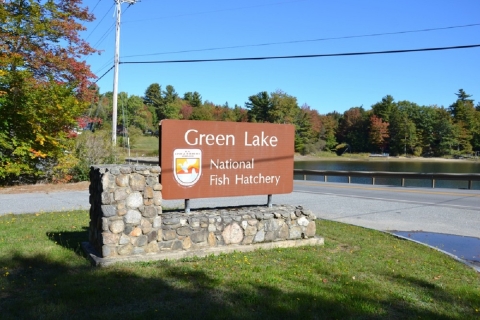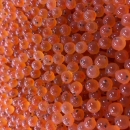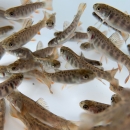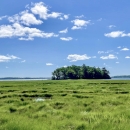About Us
Since 1871, the National Fish Hatchery system has been at work improving recreational fishing and restoring aquatic species that are in decline, at risk, and are important to the health of our aquatic systems. Across the country, the network of National Fish Hatcheries work with states and tribes to conserve, restore and enhance the fish and aquatic resources of America for future generations.
Green Lake National Fish Hatchery is a large-scale cold water hatchery located in Downeast Maine. Built in 1973, the mission of the hatchery has changed from providing sport fish for New England waters, to a conservation hatchery dedicated to raising river-specific strains of healthy Atlantic salmon for recovering endangered Atlantic salmon to Gulf of Maine rivers. Three out of every four Atlantic salmon returning to U.S. waters come from Green Lake National Fish Hatchery.
Our Mission
Since 1871, National Fish Hatcheries have been applying science-based approaches to conservation challenges. We work with our partners and engage the public to conserve, restore, and enhance fish and other aquatic resources for the continuing benefit of the American people. Conservation is at the heart of what we do, and we recognize that we do this work for the American people–both the present generation who benefit today and future generations who will inherit our legacy of conserving America’s aquatic resources.
Green Lake National Fish Hatchery was established in 1973 to support the restoration of Atlantic salmon in New England. Today, Green Lake plays a vital role in raising Atlantic salmon for conservation and research efforts.
Other Facilities in this Complex
Green Lake NFH belongs to a broader complex of FWS facilities known as the Maine-New Hampshire Fish and Wildlife Complex. The complex is comprised of 7 offices, including three national fish hatcheries. Collectively, we conserve the unique fish and wildlife of Maine and New Hampshire such as wood ducks, eagles, plovers, songbirds, cougar, lynx, brook trout, salmon and alewife.









